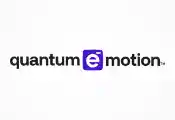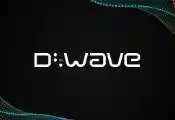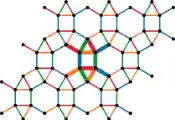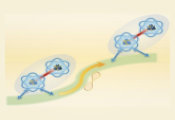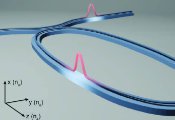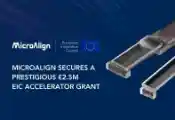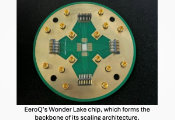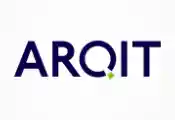Infleqtion Unveils Open-Source Library for Quantum Error Correction Research
BOULDER, Colo., May 13 2025 -- A team of researchers at Infleqtion, working with JPMorgan Chase, today announced the release of a new open-source research software library designed to dramatically accelerate research progress towards improving the efficiency of potential quantum applications. The announcement, along with other strategic insights, will be discussed in more detail during Infleqtion CEO Matthew Kinsella’s featured appearances during the Economist Impact Commercialising Quantum Global 2025 event, taking place May 13-14 in London.
The library, available here, introduces advanced error-correction techniques that enable 10-100x reductions in the number of physical qubits required to run quantum programs. This step-change improvement addresses one of the biggest barriers in quantum computing today: the sheer scale of hardware typically needed to achieve practical fault tolerance.
“Efficient error correction is one of the key enablers for commercially relevant quantum computing,” said Pranav Gokhale, General Manager of Computing, Infleqtion. “Through our work with JPMorgan, we’re showing how software and hardware innovation, especially the flexibility of our Sqale quantum processor, can work together to move the financial industry toward commercial use of quantum computing faster.”
Unlocking Efficiency Through Hardware-Aware Software
Historically, building a fault-tolerant quantum computer has required massive overhead: it’s been estimated that a single logical, error-corrected qubit might need up to 1,500 physical qubits to function reliably. By contrast, the new library reduces that requirement to between 15 and 150, depending on the implementation, dramatically shrinking the hardware footprint needed for real-world applications.
The tools implemented in the qLDPC library are particularly suitable to Infleqtion’s neutral atom-based quantum computing hardware, which allows highly customizable qubit layouts. This hardware flexibility makes it possible to implement more efficient error-correcting codes.
Open Access for Maximum Impact
To encourage collaboration and ongoing innovation, qLDPC is available as an open-source library, allowing developers, researchers, and hardware partners to engage directly with the codebase. The project is intended as a shared foundation for quantum developers to explore new methods for improving error correction and optimizing quantum workloads across a variety of platforms.
This announcement also marks another milestone in Infleqtion’s growing quantum footprint in the UK, where it continues to lead joint R&D initiatives at the National Quantum Computing Centre (NQCC) and other academic and industrial collaborations.
Infleqtion at Economist Impact’s Commercialising Quantum Global 2025
Infleqtion’s Matthew Kinsella and Pranav Gokhale are leading several discussions during Europe’s largest quantum event, Commercialising Quantum Global, which kicks off today in London. Sessions include:
- May 13: “Closing the classical gap: when and how will quantum overtake” fireside chat, featuring Mathew Kinsella
- May 14: “Quantum in action: real applications, real advantages” interactive roundtable, featuring Mathew Kinsella and Pranav Gokhale
- May 14: “Let’s get entangled: fostering international collaboration and alliances” panel session, featuring Matthew Kinsella

